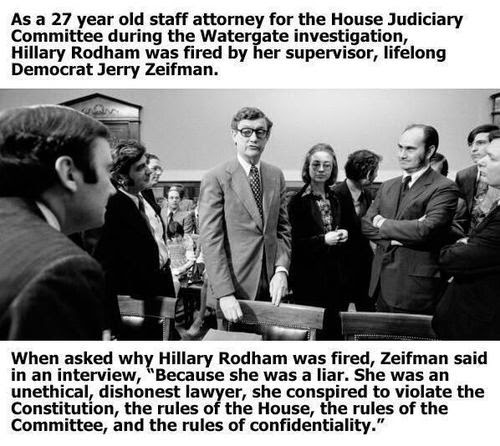The following is a direct violation of:
For almost 40 years, Carole Hinders has dished out Mexican specialties at her modest cash-only restaurant. For just as long, she deposited the earnings at a small bank branch a block away — until last year, when two tax agents knocked on her door and informed her that they had seized her checking account, almost $33,000.



There
is nothing illegal about depositing less than $10,000cash unless it is
done specifically to evade the reporting requirement. But often a mere
bank statement is enough for investigators to obtain a seizure warrant.
Amendment IV
The right of the people to be secure in their persons, houses, papers, and effects, against unreasonable searches and seizures, shall not be violated, and no warrants shall issue, but upon probable cause, supported by oath or affirmation, and particularly describing the place to be searched, and the persons or things to be seized.For almost 40 years, Carole Hinders has dished out Mexican specialties at her modest cash-only restaurant. For just as long, she deposited the earnings at a small bank branch a block away — until last year, when two tax agents knocked on her door and informed her that they had seized her checking account, almost $33,000.
The Internal Revenue Service
agents did not accuse Ms. Hinders of money laundering or cheating on
her taxes — in fact, she has not been charged with any crime. Instead,
the money was seized solely because she had deposited less than $10,000
at a time, which they viewed as an attempt to avoid triggering a
required government report.
“How
can this happen?” Ms. Hinders said in a recent interview. “Who takes
your money before they prove that you’ve done anything wrong with it?”
The federal government does.
Using
a law designed to catch drug traffickers, racketeers and terrorists by
tracking their cash, the government has gone after run-of-the-mill
business owners and wage earners without so much as an allegation that
they have committed serious crimes. The government can take the money
without ever filing a criminal complaint, and the owners are left to
prove they are innocent. Many give up.
Richard Weber, the chief of Criminal Investigation at the I.R.S., said in a written statement,
“This policy update will ensure that C.I. continues to focus our
limited investigative resources on identifying and investigating
violations within our jurisdiction that closely align with C.I.’s
mission and key priorities.” He added that making deposits under $10,000
to evade reporting requirements, called structuring, is still a crime
whether the money is from legal or illegal sources. The new policy will
not apply to past seizures.
The
I.R.S. is one of several federal agencies that pursue such cases and
then refer them to the Justice Department. The Justice Department does
not track the total number of cases pursued, the amount of money seized
or how many of the cases were related to other crimes, said Peter Carr, a
spokesman.

But the Institute for Justice,
a Washington-based public interest law firm that is seeking to reform
civil forfeiture practices, analyzed structuring data from the I.R.S.,
which made 639 seizures in 2012, up from 114 in 2005. Only one in five
was prosecuted as a criminal structuring case.
Make no mistake your money is NOT your own. You are ALLOWED the use of FEDERAL RESERVE NOTES only with permission of the FEDERAL RESERVE BANK. At any time the FED or the IRS(The collection arm of the FED) can seize your money, savings, hard currency, assets, etc.
You are a SLAVE and SLAVES OWN nothing!
Don't believe me? Stop paying your taxes, stop paying your property taxes and see how long you last before they take everything from you.

The
practice has swept up dairy farmers in Maryland, an Army sergeant in
Virginia saving for his children’s college education and Ms. Hinders,
67, who has borrowed money, strained her credit cards and taken out a
second mortgage to keep her restaurant going.
Their
money was seized under an increasingly controversial area of law known
as civil asset forfeiture, which allows law enforcement agents to take
property they suspect of being tied to crime even if no criminal charges
are filed. Law enforcement agencies get to keep a share of whatever is
forfeited.
Critics
say this incentive has led to the creation of a law enforcement
dragnet, with more than 100 multiagency task forces combing through bank
reports, looking for accounts to seize. Under the Bank Secrecy Act,
banks and other financial institutions must report cash deposits greater
than $10,000. But since many criminals are aware of that requirement,
banks also are supposed to report any suspicious transactions, including
deposit patterns below $10,000. Last year, banks filed more than
700,000 suspicious activity reports. Owners who are caught up in
structuring cases often cannot afford to fight.

The median amount seized
by the I.R.S. was $34,000, according to the Institute for Justice
analysis, while legal costs can easily mount to $20,000 or more.
